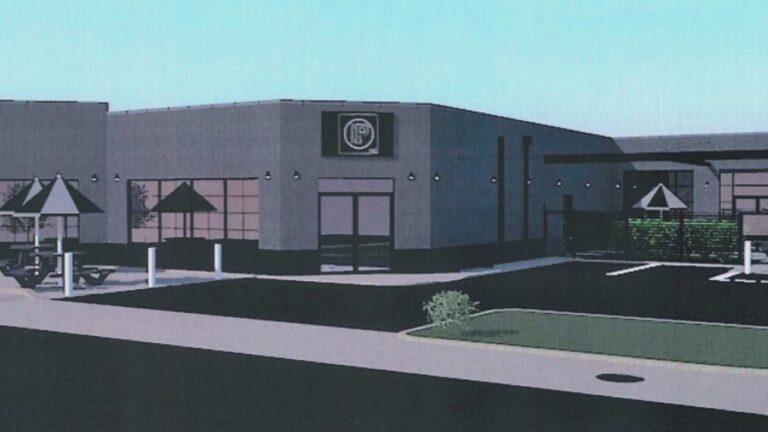Are you planning to open an event venue but feeling overwhelmed by the complexities of zoning requirements? Understanding what zoning is required for an event venue is crucial for a successful and compliant operation. Zoning regulations dictate where businesses can be located and the activities they can conduct in specific areas. Navigating these regulations can be daunting, but with the right knowledge, you can ensure your event venue is in full compliance with local laws. In this blog, we will decode the zoning requirements for event venues, highlighting what you need to know to set up and operate your space legally and efficiently. Let’s delve into the world of zoning and make sense of it for your event venue venture.
Understanding Zoning Regulations for Event Venues
When establishing an event venue, understanding the zoning regulations is crucial to ensuring compliance with local laws and regulations. Zoning regulations dictate the permissible land uses in specific areas, including where event venues can be located.
Zoning Categories for Event Venues
Event venues typically fall under commercial or mixed-use zoning categories. Commercial zoning allows for businesses and commercial activities, including event spaces. Mixed-use zoning combines residential and commercial areas, providing opportunities for event venues in specific zones.
Permit Requirements
Before establishing an event venue, obtaining the necessary permits is essential. These permits may include zoning permits, occupancy permits, liquor licenses for serving alcohol, and health permits. Compliance with these requirements ensures the event venue operates legally.
Zoning Restrictions
Zoning regulations may impose restrictions on event venues, such as noise levels, operating hours, parking facilities, and maximum occupancy limits. Adhering to these restrictions is vital to maintaining neighborhood harmony and regulatory compliance.

Types of Zoning Requirements for Event Spaces
When establishing an event venue, understanding the zoning requirements is crucial. Different types of zoning regulations dictate how a space can be used for events. Here are some common zoning requirements for event spaces:
Zoning for Commercial Events
Commercial events, such as trade shows or product launches, often require zoning permits that allow for temporary commercial activities within a designated area. These permits may specify the duration, size limitations, and safety requirements for the event.
Additionally, certain zoning ordinances may restrict the types of activities that can take place within commercial event spaces to ensure compliance with local laws and regulations.
Zoning for Residential Events
Hosting events in residential areas may be subject to specific zoning regulations aimed at preserving the residential character of the neighborhood. These regulations may include limits on noise levels, event hours, and the number of attendees allowed at any given time.
Property owners looking to use their residential spaces for events should check with local authorities to ensure compliance with zoning requirements and obtain any necessary permits.
Zoning for Outdoor Events
Outdoor events, such as concerts or festivals, often require special zoning considerations due to their potential impact on the surrounding environment and community. Zoning ordinances for outdoor events may address issues like parking, crowd control, and waste management.
Event organizers must be aware of these zoning requirements to plan and execute outdoor events safely and responsibly.
Key Considerations for Zoning Compliance
Ensuring zoning compliance is crucial when setting up an event venue. Here are some key considerations to keep in mind to abide by zoning regulations and avoid any legal issues.
Understand Zoning Requirements
Before establishing an event venue, research and understand the specific zoning requirements for the area you intend to operate in. Different locations may have varying regulations regarding the types of events allowed, noise levels, parking provisions, and hours of operation.
Consult with Local Authorities
Engage with local zoning officials or planning departments to gain insights into the zoning ordinance applicable to your event venue. Seeking clarification on any uncertainties can help you align your operations with the designated zoning laws.
Consider Zoning Changes
If the existing zoning regulations do not permit the type of events you wish to host, consider applying for zoning changes or variances. This process usually involves submitting formal applications and seeking approvals from the local authorities.
Maintain Compliance
Once you have obtained the necessary permits or approvals, it is essential to comply with all zoning regulations throughout your event venue’s operation. Regularly review the zoning requirements to ensure continued compliance and avoid potential penalties.
Navigating Permits and Approvals
When setting up an event venue, it is crucial to understand the necessary zoning requirements and permitting process to ensure compliance with local regulations. Here’s what you need to know when navigating permits and approvals for your event venue:
Understanding Zoning Regulations
Before starting any construction or operation for your event venue, comprehensive zoning clearance is necessary to determine if the proposed site meets the required land use regulations. It’s important to check local zoning ordinances to see if the location is zoned appropriately for your intended use.
Obtaining Permits and Approvals
Once you’ve confirmed the zoning requirements, the next step is to apply for the necessary permits. This may involve obtaining permits for construction, special event permits, liquor licenses, health permits, or occupancy certificates. Be sure to coordinate with the local planning department to determine all the permits needed.
Remember that obtaining permits and approvals may take time, so it’s essential to start the process early to avoid delays in your event venue setup.
Impact of Zoning Regulations on Event Planning
When organizing an event, understanding the zoning regulations required for an event venue is crucial. Zoning regulations dictate the permissible land uses in different zones, ensuring that events comply with specific guidelines to maintain harmony with the surrounding environment and community.
Types of Zoning Required for an Event Venue
Event planners need to be aware of the different types of zoning that may be required for an event venue. These can include residential, commercial, industrial, and mixed-use zoning restrictions that determine the feasibility of hosting an event at a specific location.
- Detailed research on the zoning laws for an event venue in a particular area
- Collaboration with city planners and authorities to obtain necessary permits
Compliance with Zoning Regulations for Event Success
Ensuring compliance with zoning regulations is imperative for the success of any event. Failure to adhere to these regulations can result in fines, closure of the event, or even legal action. Event planners must collaborate with zoning officials or specialists to guarantee that the event meets all necessary requirements.
Proper planning and coordination with zoning authorities can help avoid any last-minute disruptions.
Frequently Asked Questions
-
- What are zoning requirements for an event venue?
- Zoning requirements for an event venue typically dictate the specific areas where event venues are allowed to operate within a city or municipality. These requirements may include restrictions on location, size, noise levels, parking availability, and more.
-
- Why is it important to understand zoning requirements for an event venue?
- Understanding zoning requirements for an event venue is crucial to ensure that the venue complies with local laws and regulations. Failure to adhere to zoning requirements can result in fines, closure of the venue, or other legal consequences.
-
- How can I find out the zoning requirements for an event venue?
- You can typically find out the zoning requirements for an event venue by contacting your local planning or zoning department. They will be able to provide you with information on what is allowed in specific zones and guide you through the permitting process.
-
- What factors should I consider when choosing an event venue based on zoning requirements?
- When choosing an event venue, it’s important to consider factors such as the venue’s allowable capacity, parking availability, noise restrictions, and proximity to residential areas. Ensuring that the venue meets all zoning requirements will help you avoid potential issues in the future.
-
- Are there any common restrictions imposed by zoning requirements for event venues?
- Common restrictions imposed by zoning requirements for event venues may include limitations on operating hours, outdoor signage, alcohol service, and the types of events that can be hosted. It’s important to familiarize yourself with these restrictions before selecting a venue.
Closing Thoughts: Navigating the Zoning Requirements for Your Dream Event Venue
Understanding the zoning requirements for an event venue is crucial in ensuring the success of your venture. From zoning classifications to permits, this blog has shed light on the key aspects that dictate where you can operate your event venue. By familiarizing yourself with the local zoning codes, consulting with relevant authorities, and seeking legal advice when needed, you can navigate the zoning landscape with confidence.
In summary, zoning regulations play a significant role in determining the feasibility of setting up an event venue in a specific location. By doing your due diligence and proactively addressing zoning requirements, you can pave the way for a thriving event venue that complies with all necessary regulations.
Remember, each location may have unique zoning requirements, so staying informed and seeking expert guidance are paramount to realizing your vision for the perfect event venue.

